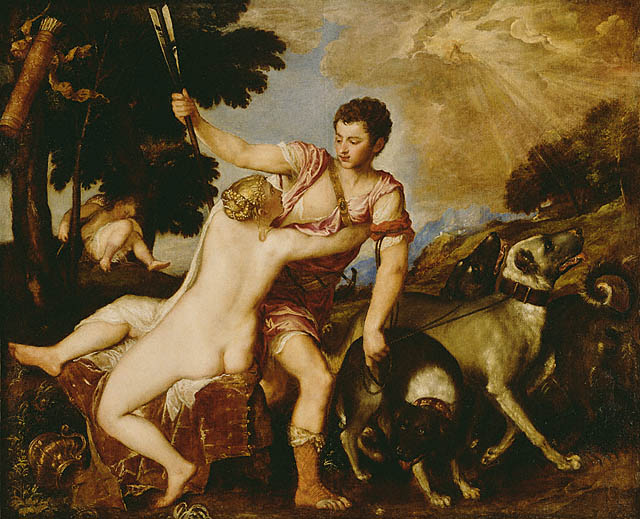I think, that in our class, the name Ted Hughes has been mentioned several times.
Though I am completely unfamiliar with his work, I have been meaning to read him; for when I fall in a state of boredom—and this happens frequently--I enjoy reading contemporary poetry. Today, I suppose, I fell into a state of boredom.
The work I want to discuss in this Blog however, is not necessarily contemporary, but is rather Hughes retelling of Ovid’s Metamorphoses, titled: Twenty Four Tales From Ovid. Before I engage in discussing this text, I would like to make this clear: I had not originally planned on stumbling across this poet today—but it happened. Let me begin this blog then, by telling the tale of how my stumbling occurred.
Today, I had originally wanted to write a blog on the after-wood of our translation of Ovid. Unfortunately, I forgot my text at home, so I decided that I should search for it at the library. I had no luck, but I did find Hughes text, Tales From Ovid. So, as chance would have it—me digressing from my original intention—I decided to read the introduction of the book, and his rendering of a few of the tales we have discussed in class.
So, for this blog, I would like to give a brief overview of his introduction, and I will quote Hughes version of Ovid’s Closing lines:
Introduction:
In his introduction, Hughes begins it by discussing his perspective on the unusual permeability of Ovid’s text, The Metamorphoses. While there are of course many scholarly explanations of why people still read Ovid, (one could consult a vast array of literary theory) I thought that it was intriguing reading a poet’s perspective for a change.
Anyway, from what I can gather—and his perspective probably does have a hint of Bloomian theory—I would guess that Hughes subscribes to the notion that there are literary kinships which sustains certain texts. For example, in his introduction, Hughes mentions a few of the authors that Ovid helped to inspire; the most important is of course Shakespeare, who “was said to live in him again”. Anyway, According to Hughes, what really binds Shakespeare to Ovid is not merely Ovid’s tales per se, but is rather the “crucial connection…(that exists) in their common taste for a tortured subjectivity(,) and catastrophic extremes of passion that border on the grotesque”. It is clear then, according to Hughes, that when discussing Ovid, it is not so much his myths that have persisted in the collective literary imagination, it is more his artistic rendering of certain Greco-roman myths that invoke powerful emotions.
Hughes defends this position by stating that Ovid “takes up only those tales which catch his fancy, and engages with each one no further than it liberates his own creative zest.” The aim of his “creative zest” being an expression of “what passion feels like to one possessed by it…not just ordinary passion either, but human passion in extremis—passion where it combusts, or levitates, or mutates into an experience of the supernatural.”
Adding a little bit of my own perspective to the subject matter, I believe that it is this fictional stream of sensational images rendered supernatural that tethers these poets together. The reader of this blog might recall our instructor claiming that Shakespeare tried to outdo Ovid in the grotesque—Shakespeare’s Philomela in addition to getting her tongue cut out also has both hands severed. After reading this essay by Hughes, and contemplating this imagery, I now realize that Shakespeare was not trying to copy Ovid’s images, he was simply trying to capture the feeling Ovid invokes through his images by making them new.
Ultimately, isn’t this the message of Ovid’s work—“all things change (even images) yet no thing dies(the feeling of those images). Or, as Hughes states “The act of metamorphosis, which at some point touches, each of the tales, operates acts as the symbolic guarantee that passion become(s) mythic…(which) lifts the whole episode onto the supernatural or divine plane”.
So, in a sense (and this is just my perspective), Ovid in the eyes of the western tradition has become sort of a deity that should be at the center of worship when reading The Metamorphosis. The work is sacred, and he wants the spirit—more precisely the extreme passion of his work to be forever present in future works. These Greco roman myths are of course powerful by themselves—yet when they are altered by a poet of such magnitude, they last forever.
And all this is of course why Ted Hughes writes his own version of Ovid’s tales. And it is also why each translation changes, yet preserves the spirit of Ovid.
“Now have I brought a work to end which neither
Jove’s fierce wrath,
Nor sword, nor fire, nor fretting age with all the force
It hath
Are able to abolish quite. Let come that fatal hour
Which (saving of this brittle flesh) hath over me no
Power,
And at his pleasure make an end of my uncertain time.
Yet shall the better part of me assured be to climb
Aloft above the starry sky. And all the world shall never be
Be able for to quench my name. For look how far so ever
The Roman Empire by the right of conquest shall extend,
So far shall all folk read this work. And time without
All end
(If poets as by prophecy about the truth may aim)
My life shall everlasting be lengthened still by fame.’






